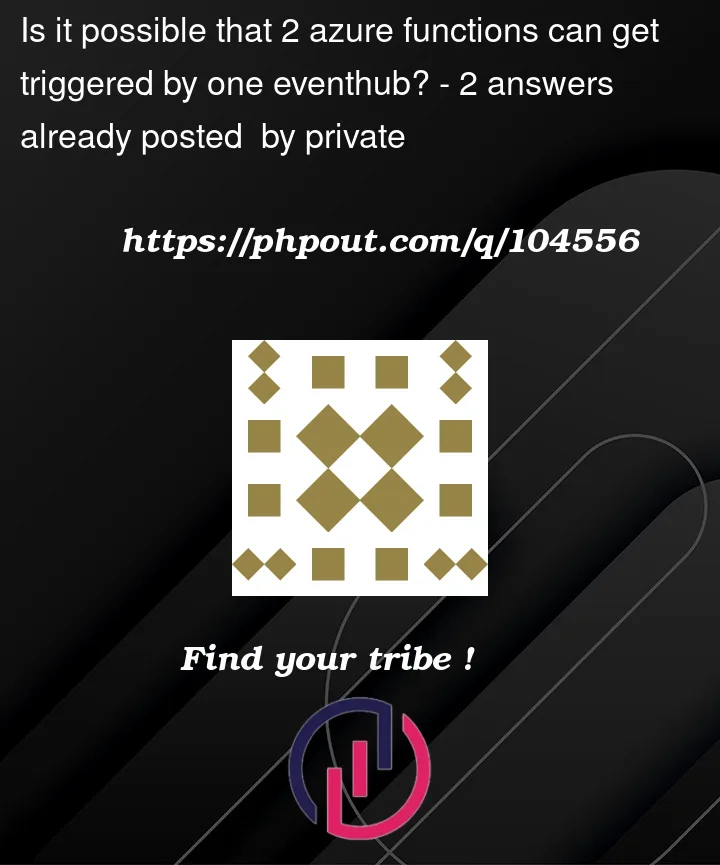Is it possible that 2 azure functions can get triggered by one eventhub? One azure function will write its data to database1 and the other azure function writes its data to database2
[FunctionName("EventToDB1")]
public async System.Threading.Tasks.Task Run([EventHubTrigger("eventhub", Connection = "Debezium")]
EventData[] events, ILogger log)
{
{
[FunctionName("EventToDB2")]
public async System.Threading.Tasks.Task Run([EventHubTrigger("eventhub", Connection = "Debezium")]
EventData[] events, ILogger log)
{
{
answer on the possibility of having 2 azure functions get triggered by one eventhub




2
Answers
Yes that is possible by using different consumer groups. Because you specified the same connection to the Event Hub, being "Debezium", I Assume you want both funtions to process the same message. You have to create a new consumer group and specify the name using the
ConsumerGroupproperty of the EventHubTrigger attribute (The default consumergroup is$Default):Each consumer group receives the same messages from the Event Hub.
I do agree with @peter bons, you need to create two consumer groups for that and you can create two consumers by below process:
You can also use logic apps to work with event hubs.